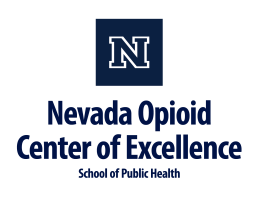Join us for a five-part virtual follow-up series building on the in-person conference Supporting Pregnant and Parenting People Who Use Substances: Moving Toward Compassionate Care. Each one-hour session will take a deeper look at the health and well-being of parents, infants, and families affected by substance use disorder (SUD) and opioid use disorder (OUD).
Series Schedule (Tuesdays from 10–11 am PT):
- September 30, 2025 – Infant Health and Early Development
- October 28, 2025 – Postpartum Period Through First Year
- November 18, 2025 – Child Welfare Systems and Alternatives
- December 16, 2025 – Substance Use and Treatment Approaches
- January 27, 2026 – Data and Measures of Success
IMPORTANT: This series will be hosted as a Zoom Meeting. Participants should have a stable internet connection, webcam, and microphone to actively engage in discussions and activities. If you’re new to Zoom, visit the Getting Started with Zoom Video Conferencing Software section of our website.
Session 1: September 30, 2025 – Infant Health and Early Development
This session explores foundational infant health practices, with a focus on ensuring equitable access to preventive care for infants born to parents who use substances. Participants will examine strategies for promoting immunizations and screenings, addressing congenital syphilis, and advancing safe sleep practices through culturally responsive and trauma-informed approaches.
Learning Objectives:
- Identify core preventive health practices that support early development.
- Recognize and address rising rates of congenital syphilis and related prevention strategies.
- Apply principles of safe sleep promotion within the context of health equity.
Presented by: Kimá Joy Taylor, MD, MPH, FAAP and Mishka Terplan, MD, MPH, FACOG, DFASAM
Kimá Joy Taylor, MD, MPH, FAAP is the Co-Founder of Doing Right By Birth and Founder of Anka Consulting, a health care consulting firm and recently completed a Non-Resident Fellowship at the Urban Institute. She most recently served as the National Drug Addiction Treatment and Harm Reduction Program Director at the Open Society Foundations. She oversaw grantmaking that supported education, advocacy, systems reform and innovation to expand equitable access to and outcomes from a full continuum of integrated, evidence informed, culturally and linguistically effective substance use disorder services and supported programming that developed non-punitive individual and public health not criminal justice responses for people with substance use disorders. Prior to joining the Open Society Foundations, Taylor served as Deputy Commissioner for the Baltimore City Health Department where she created more cohesive and integrated public health services for citizens at risk; a large percentage of whom had substance use disorders and/or HIV. Before Baltimore, she served as the health and social policy legislative assistant for Senator Sarbanes, with issue areas including Social Security, TANF, pharmaceuticals, Medicare, Medicaid, and other health care policy and women’s issues.A pediatrician, Taylor is a graduate of Brown University, Brown University School of Medicine, and the Georgetown University residency program in pediatrics. From 1998 to 2002, Taylor cared for uninsured and underinsured patients at a community health center in Washington, D.C., and created a city-wide coalition to advance literacy in pediatric primary care. She worked with other community organizations to empower youth such that they will realize their abilities, grasp opportunities, and improve the world at large.In 2002, Taylor was awarded a Commonwealth Foundation fellowship in minority health policy at Harvard University. During the fellowship, Taylor’s research focused on exploring state legislative remedies for racial and ethnic health disparities. Eliminating health disparities and inequities has been a theme throughout all of her work.
Mishka Terplan, MD, MPH, FACOG, DFASAM is board certified in both obstetrics and gynecology and in addiction medicine. His primary clinical, research, public health, and advocacy interests lie along the intersections of reproductive and behavioral health. He is Medical Director at Friends Research Institute and adjunct faculty at the University of California, San Francisco where he is a Substance Use Warmline clinician. He is Co-Founder and Co-Director of Doing Right By Birth, a non-profit that seeks to flip the script from drug exposure to early childhood development. Dr. Terplan has spoken at local high schools and before the United States Congress and is internationally recognized as an expert in the care of pregnant and parenting people who use drugs.
Continuing Education Units: 5 CEUs*
Each session offers 1 Continuing Education Units (CEUs), with a total of 5 CEUs awarded for full participation in the series.
This training is approved for continuing education by the boards listed here as well as by the Nevada Certification Board for PRSS(-S), CHW, Prevention, and Doulas. Please see the list below for Nevada Certification board approval breakdown
- Session 1: Approved for CHW, Prevention, and Doulas
- Session 2: Approved for PRSS(-S), CHW, and Doulas
- Session 3: Approved for PRSS(-S)
- Session 4: Approved for PRSS(-S) and Doulas
- Session 5: Approved for PRSS(-S) and Prevention
Funding for this training was made possible in whole or in part by the Nevada Department of Health and Human Services (DHHS) Director’s Office through the Fund for a Resilient Nevada, established in Nevada Revised Statutes 433.712 through 433.744, and by Washoe County through the One Nevada Agreement allocation of the Washoe Opioid Abatement and Recovery Fund (Grant #WOARF24-00003). The content is solely the responsibility of the authors and does not necessarily represent the official views of the Nevada Opioid Center of Excellence, DHHS, or Washoe County.

